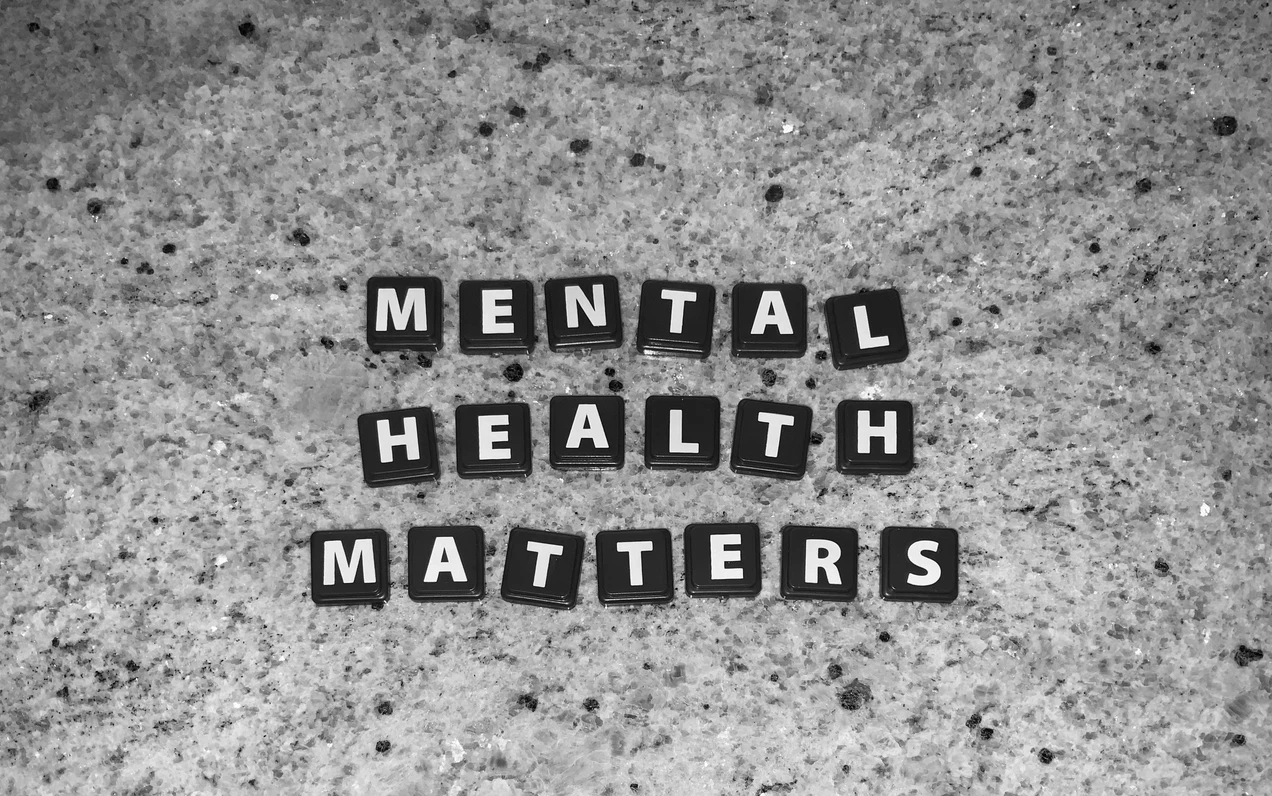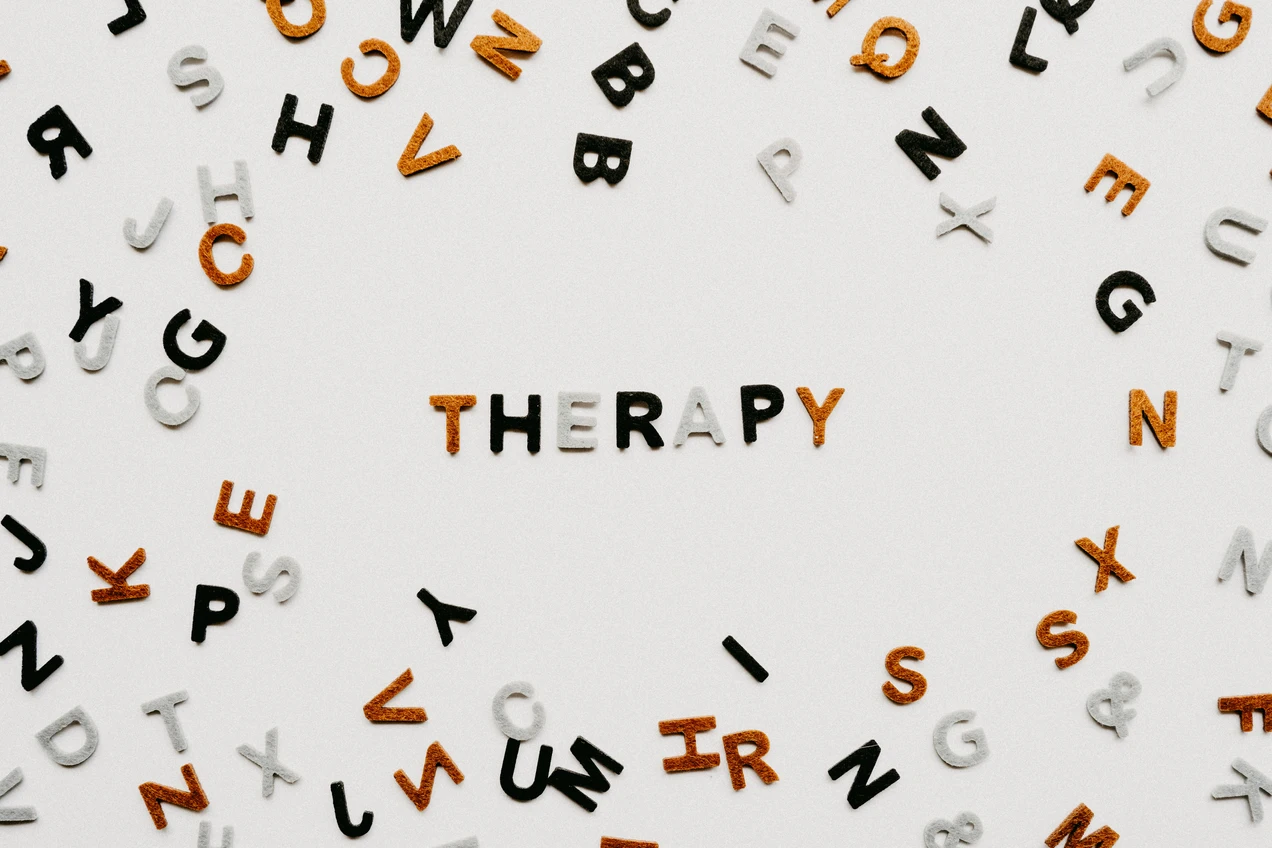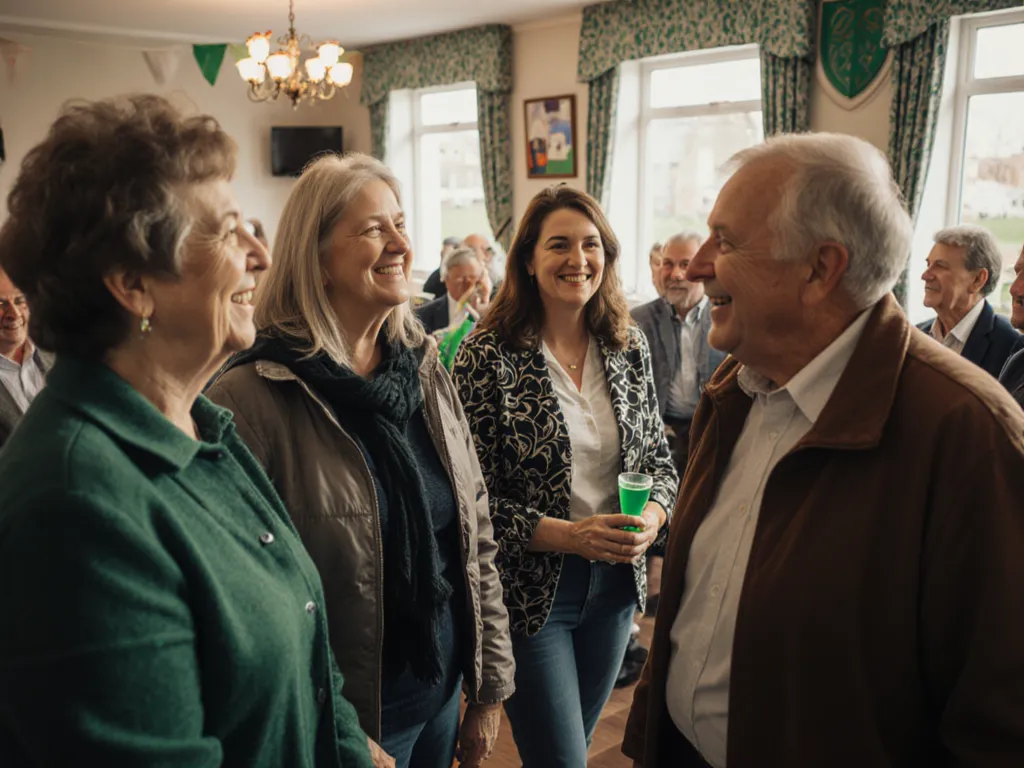Mental health support begins with compassionate listening in a safe environment
In Ireland today, one in four people will experience a mental health challenge at some point in their lives. Yet despite these staggering statistics from the Mental Health Commission Ireland, many of us feel utterly unprepared when faced with a friend, family member, or colleague in mental distress. Just as we learn physical first aid to help someone having a heart attack, mental health first aid equips us with vital skills to support those experiencing psychological crisis or emotional difficulties.
The concept of mental health first aid isn't about replacing professional therapy or counselling services. Rather, it's about building a mentally healthier Ireland where everyone possesses the fundamental knowledge to recognise warning signs, offer initial support, and guide people towards appropriate professional help when needed. Whether you're a parent worried about your teenager, a manager supporting your team, or simply someone who wants to be there for loved ones, these essential mental health first aid skills could make a life-changing difference.
Understanding Mental Health First Aid in the Irish Context
Mental health first aid is the initial assistance given to someone developing a mental health problem, experiencing a worsening of an existing mental health condition, or in a mental health crisis. The support is provided until appropriate professional treatment is received or the crisis resolves. In Ireland, where waiting lists for mental health services can stretch for months and rural communities often lack immediate access to psychological support, these skills become even more crucial.
The HSE's National Office for Suicide Prevention recognises mental health first aid training as a key component in Ireland's mental health strategy. This approach acknowledges that whilst professional therapists and counsellors provide essential treatment, the first person to notice someone struggling is often a family member, friend, or colleague—not a mental health professional.
Consider this: if someone collapsed clutching their chest, most of us would know to call 999, keep them calm, and possibly attempt CPR if trained. But when someone shows signs of severe anxiety, depression, or suicidal thoughts, many Irish people freeze, unsure how to help without making things worse. This knowledge gap costs lives and prolongs suffering unnecessarily.
Mental health first aid bridges this gap by teaching evidence-based techniques that anyone can use. It's about creating a culture where mental health conversations aren't stigmatised, where seeking help is seen as strength rather than weakness, and where communities support one another through difficult times. For more insights on beginning your mental health journey, read our guide on Navigating Online Therapy in Ireland.
Recognising the Warning Signs: What to Look For
Identifying mental health struggles early can dramatically improve outcomes. In Ireland, organisations like Jigsaw mental health services emphasise that early intervention during teenage years can prevent more serious problems developing later. But recognition requires knowing what to watch for across different age groups and situations.
Behavioural changes often provide the first clues. Someone might withdraw from activities they previously enjoyed, such as missing GAA training sessions they never skipped before, or declining invitations to social gatherings. Work or school performance may decline noticeably. Sleep patterns might shift dramatically—either sleeping excessively or battling persistent insomnia. You might notice increased irritability, unexpected emotional outbursts, or conversely, a troubling emotional numbness where someone seems disconnected from their surroundings.
Physical symptoms frequently accompany mental health challenges, though they're often overlooked or attributed to other causes. Unexplained headaches, digestive issues, chronic fatigue, or sudden weight changes can all signal psychological distress. In the workplace, repeated sick days or arriving late might indicate someone struggling to cope rather than simple unreliability. Our article on Online Therapy for Work Stress explores these workplace warning signs in detail.
Emotional indicators include persistent sadness lasting more than two weeks, excessive worry that interferes with daily activities, feelings of hopelessness or worthlessness, and intense mood swings. Someone might express feeling overwhelmed by previously manageable tasks or describe life as meaningless. They might exhibit excessive guilt over minor issues or struggle with concentration and decision-making.
Social warning signs manifest as relationship difficulties, increased conflict with family or friends, or complete social isolation. In Ireland's close-knit communities, when someone stops attending Mass, visiting the local pub, or participating in community events they previously enjoyed, it often signals deeper issues.
For young people specifically, watch for dramatic changes in friend groups, declining school attendance, self-harm behaviours, or increased risk-taking. Parents might notice their teenager becoming secretive, experiencing extreme mood swings, or expressing feelings that nobody understands them.

The ALGEE Framework: Your Mental Health First Aid Action Plan
Mental Health First Aid International developed the ALGEE framework, which provides a structured approach to helping someone experiencing mental health difficulties. This evidence-based model, endorsed by mental health facilities in Ireland, gives you a clear action plan when someone needs support.
The ALGEE framework provides a clear structure for mental health first aid intervention
A - Assess for risk of suicide or harm: This crucial first step involves sensitively evaluating whether someone poses immediate danger to themselves or others. Direct questions save lives—research consistently shows that asking someone if they're considering suicide doesn't plant the idea but rather provides relief through open discussion. Ask clearly: "Are you thinking about ending your life?" If they say yes, don't leave them alone and seek immediate professional help through emergency services or crisis hotlines.
L - Listen non-judgementally: Create a safe space where the person feels heard without criticism or advice-giving. Use open body language, maintain appropriate eye contact, and give them your full attention—put away your mobile phone. Reflect their feelings back: "It sounds like you're feeling completely overwhelmed." Avoid minimising their experience with phrases like "Others have it worse" or "Just think positive." In Irish culture, where "having a chat" is therapeutic, this step often comes naturally, but remember to listen more than you speak.
G - Give reassurance and information: Provide hope by reassuring them that effective treatments exist and recovery is possible. Share accurate information about mental health conditions to combat stigma and misconceptions. Explain that mental health problems are medical conditions, not character flaws or weaknesses. Reference Irish resources and statistics to normalise their experience—knowing that one in four Irish people face similar challenges reduces isolation.
E - Encourage appropriate professional help: Guide them towards suitable professional support. This might include their GP, who can provide initial assessment and referrals; counselling services through their Employee Assistance Programme; online therapy platforms like virtual counselling services; or specialised services for specific issues. Familiarise yourself with local resources—knowing that free counselling exists through various Irish charities, or that Jigsaw offers youth mental health support, enables you to provide practical guidance.
E - Encourage self-help and other support strategies: Suggest evidence-based self-care strategies whilst they await professional help. These might include regular exercise (even a daily walk along the coast or in Phoenix Park helps), maintaining routine and structure, practising mindfulness or meditation, connecting with supportive friends and family, joining support groups, or engaging in meaningful activities. Respect their autonomy—offer suggestions but let them choose what feels manageable.

Crisis Intervention: When Immediate Action is Needed
Sometimes mental health first aid means managing acute crises requiring immediate intervention. Recognising these situations and knowing how to respond can literally save lives.
Professional crisis support involves creating a safe, calm environment with reassuring communication
Panic attacks strike suddenly with intense physical symptoms—racing heart, sweating, trembling, shortness of breath, chest pain—leading many to believe they're having a heart attack. Guide the person to a quiet space, encourage slow, deep breathing (breathe in for four counts, hold for four, out for four), remind them this will pass (most panic attacks peak within 10 minutes), and stay with them until symptoms subside. Avoid saying "calm down" or "it's all in your head"—acknowledge their distress is real whilst reassuring them they're safe.
Suicidal crisis requires immediate action. If someone expresses suicidal intent, has a specific plan, or has attempted self-harm, don't leave them alone. Remove any means of harm if possible (medications, sharp objects), and contact emergency services on 999 or 112. Contact crisis support services like Samaritans Ireland (116 123) or text HELLO to 50808. Stay calm and listen without judgement whilst help arrives. Remember: you're not responsible for "fixing" them—your role is keeping them safe until professionals take over.
Psychotic episodes, where someone loses touch with reality, can be frightening for everyone involved. They might experience hallucinations, delusions, or extreme paranoia. Remain calm and non-threatening, speak clearly and simply, don't argue with delusions but don't agree with them either, ensure your own safety, and seek immediate professional help. If they become aggressive or pose danger to themselves or others, contact emergency services immediately.
Severe depression manifesting as complete withdrawal, inability to perform basic self-care, or expressions of hopelessness requires professional intervention. Encourage them to see their GP urgently, offer practical support like accompanying them to appointments, and help with immediate needs like ensuring they're eating and taking prescribed medications.
Building Resilience: Preventive Mental Health Strategies
Mental health first aid extends beyond crisis response to include promoting psychological wellbeing and resilience within Irish communities. Prevention proves far more effective than treatment alone.
Workplace wellbeing has gained prominence as Irish employers recognise the connection between employee mental health and productivity. Encourage your workplace to implement mental health awareness programmes, provide Employee Assistance Programme (EAP) counselling services, train managers in mental health first aid, create psychologically safe environments where people can discuss struggles without fear, and promote work-life balance. The Health and Safety Authority of Ireland now considers psychological safety alongside physical safety requirements.
Community connections form the backbone of mental health resilience. Ireland's tradition of community support—from GAA clubs to local parishes—provides natural protective factors. Strengthen these connections by checking in regularly with neighbours, particularly elderly or isolated individuals; participating in community activities; volunteering for local mental health charities; and creating informal support networks. Sometimes, knowing someone cares enough to ask "How are you really?" makes all the difference.
Educational initiatives in schools and universities help young people develop emotional intelligence and coping strategies early. Support programmes teaching stress management techniques, emotional regulation skills, healthy relationship building, and help-seeking behaviours. Parents can reinforce these lessons at home through open communication about feelings and mental health.
Personal resilience building involves developing your own mental health practices. Regular exercise, adequate sleep, balanced nutrition, mindfulness practices, and maintaining social connections all contribute to psychological wellbeing. When you model healthy coping strategies, you normalise mental health care for others.
Cultural Considerations: Mental Health First Aid in Irish Communities
Ireland's unique cultural context influences how mental health challenges manifest and how support is best provided. Understanding these nuances makes your mental health first aid more effective.

Strong community connections in Ireland provide natural support networks for mental health
Rural communities face particular challenges with mental health service access. Geographic isolation, limited transport options, and fewer specialist services mean mental health first aid skills become even more vital. Online therapy services have partially addressed this gap, but community support remains crucial. In rural Ireland, where everyone knows everyone, confidentiality concerns might prevent help-seeking. Emphasise that mental health first aid respects privacy whilst ensuring people get needed support.
Generational differences affect how mental health is perceived and discussed. Older generations might view mental health problems as personal weakness or something to hide, using phrases like "sure, we just got on with it." Younger Irish people generally show more openness about mental health but might struggle with social media pressures and comparison culture. Adapt your approach accordingly—older individuals might respond better to practical support and gentle encouragement, whilst younger people might appreciate direct conversations and digital resources.
Gender considerations remain significant in Irish mental health contexts. Men, particularly in traditional rural communities, often struggle to express emotional vulnerability. Male suicide rates in Ireland remain concerningly high, partly due to reluctance seeking help. When supporting men, consider activity-based support (talking whilst walking or working), normalising help-seeking through sports figures or respected community members who've spoken about mental health, and emphasising practical solutions and recovery stories.
Cultural and religious factors influence mental health perspectives within Ireland's increasingly diverse population. Some communities might view mental health through spiritual or traditional healing lenses. Respect these perspectives whilst gently encouraging professional support alongside traditional practices. Ireland's Catholic heritage means some individuals might prefer speaking with clergy initially—support this whilst suggesting professional counselling as complementary rather than contradictory to faith-based support. For couples experiencing relationship challenges, our couples therapy guide offers culturally sensitive approaches.
Taking the Next Steps: Your Mental Health First Aid Journey
Developing mental health first aid skills is an ongoing journey rather than a destination. Start by educating yourself through reputable sources like the HSE, Mental Health Ireland, and recognised training programmes. Many Irish organisations offer mental health first aid courses, both online and in-person, covering topics from basic awareness to specialised intervention techniques.
Practice active listening in daily conversations. When someone shares struggles, resist immediately offering solutions. Instead, reflect their feelings and ask open-ended questions. This skill alone dramatically improves your ability to support others.
Know your limits and when to seek professional help. Mental health first aid doesn't make you a therapist or counsellor. Recognise when situations exceed your capabilities and facilitate professional intervention. Keep a list of local and national mental health resources readily available.
Address your own mental health regularly. You cannot pour from an empty cup—maintaining your psychological wellbeing enables you to support others effectively. If you're struggling yourself, seek professional support through your GP or counselling services.
Create supportive environments wherever you have influence. Whether at home, work, or in community groups, promote open mental health discussions, challenge stigmatising language and attitudes, and model help-seeking behaviour.
Conclusion: Building a Mentally Healthier Ireland Together
Mental health first aid represents more than individual skills—it's about transforming Irish society's approach to psychological wellbeing. Every person trained in these techniques becomes part of a broader safety net, catching those who might otherwise fall through gaps in formal mental health services.
Imagine an Ireland where mental health conversations happen as naturally as discussions about physical health, where struggling individuals receive immediate informed support from their community, and where seeking professional therapy or counselling is viewed as routine self-care rather than crisis management. This vision becomes reality when enough people possess mental health first aid skills.
The journey towards better mental health support starts with individual action but requires collective commitment. Whether you're supporting a colleague through work stress, helping a neighbour experiencing depression, or guiding a family member towards professional counselling services, your mental health first aid skills make a genuine difference.
Remember, you don't need to be perfect or have all the answers. Simply showing up, listening without judgement, and connecting people with appropriate support can transform lives. In Ireland's tradition of community care and connection, mental health first aid feels less like learning new skills and more like formalising the compassion already present in our communities.
If you're concerned about someone's mental health or your own, remember that professional support is available. Online therapy services provide accessible, confidential support from qualified Irish therapists, ensuring help is always within reach. Mental health first aid empowers us to support one another, but professional treatment remains essential for many mental health conditions.
By developing these essential skills, you join a growing movement of Irish people committed to supporting mental health in their communities. Together, we're building an Ireland where nobody faces mental health challenges alone, where early intervention prevents crises, and where psychological wellbeing receives the same priority as physical health. Your mental health first aid skills could be the difference between someone suffering in silence and finding the support they need to thrive.



